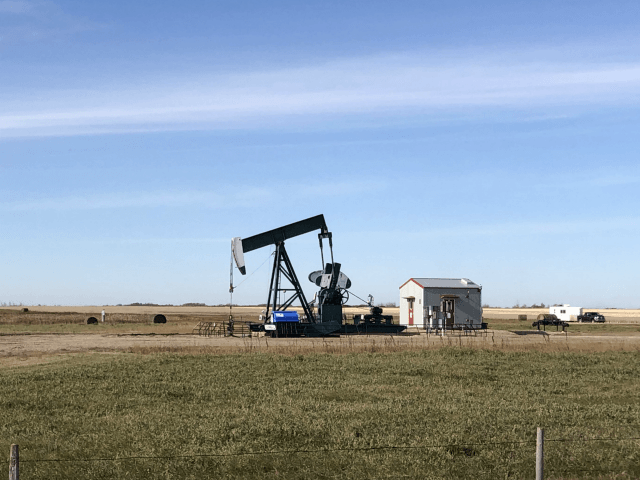The United States added just one oil rig this week amid renewed pressure from climate change activists on investors to deny capital to fossil fuel producers.
The total number of oil rigs in the U.S. ticked up from 548 to 549, data from the oil and gas services company Baker-Hughes showed on Friday.
The Permian Basin, where new production is thought to be most likely to arise, added zero for the second straight week.
The number of natural gas rigs in the U.S. climbed by one also, rising to 144.
Canada’s rig count fell by two to 101, reflecting a typical seasonal decline.
The Biden administration has said it wants more domestic oil production but until very recently it was refusing to auction new leases for federal land. Even as the administration announced the move, however, it made clear that it had contempt for fossil fuel companies and regarded them as dangers to the public good.
“For too long, the federal oil and gas leasing programs have prioritized the wants of extractive industries above local communities, the natural environment, the impact on our air and water, the needs of Tribal Nations, and, moreover, other uses of our shared public lands,” Interior Secretary Deb Haaland said in a release. “Today, we begin to reset how and what we consider to be the highest and best use of Americans’ resources for the benefit of all current and future generations.”
The administration also hiked tax on oil and natural gas revenues from leased lands significantly, from around 12.5 percent to 18.75 percent, an unprecedented hike. No president in 100 years has undertaken such an increase.
Even still, climate change activists howled with outrage.
The state of Oregon came under fire on Thursday for its investments in fossil fuels. A group called Divest Oregon, which describes itself as “a statewide grassroots coalition of individuals and organizations representing unions with PERS members, racial and climate justice groups, youth leaders, and faith communities,” issued a report lambasting the state for allegedly holding $5.3 billion of investments in fossil fuel companies.
Last month, hundreds of climate activist pressure groups signed on to a report demanding banks cease all funding for fossil fuels.
A number of Biden’s nominees have expressed antagonism toward the fossil fuel industry, discouraging investment in the sector by making it clear what the Democratic Party’s view of it is. Last year, Biden nominated to the Federal Reserve’s top bank supervisory post a former Fed official, Sarah Bloom Raskin, who advocated using regulations to discourage banks from investing in fossil fuels. He also nominated leftwing radical academic Saule Omarova, who has also called for using bank regulation to stop investment in fossil fuels, to the Office of Comptroller of the Currency. Both nominations were defeated when moderate Democrats in the Senate balked.
Perhaps most importantly, large institutions have poured money into so-called sustainable funds that looked to environmental, social, and governance factors when making investment decisions. These funds shun fossil fuel investing. According to Deliote’s Center for Financial Services, professionally managed assets with ESG mandates swelled to $46 trillion globally in 2021, representing nearly 40 percent of all assets under management. The result of this is that it has become incredibly hard to raise funds for expanding fossil fuel production. So even oil prices above $100 a barrel are not attracting capital into the sector.
In a recent episode of Bloomberg’s Odd Lots Podcast, Goldman Sachs’ top commodities strategist describes ESG investing as “a blunt instrument that is reducing capital flows into a very critical sector.”

COMMENTS
Please let us know if you're having issues with commenting.